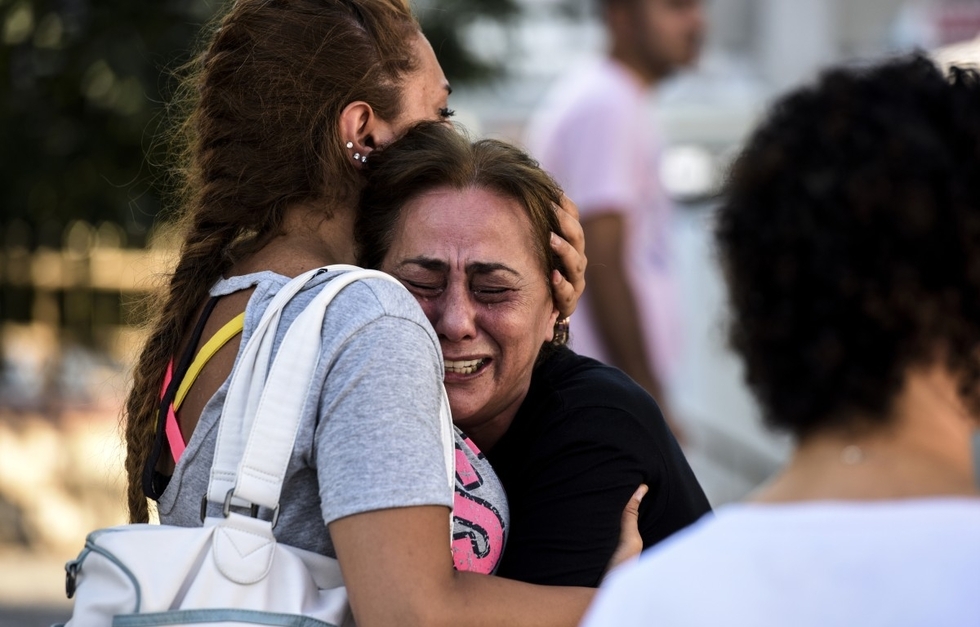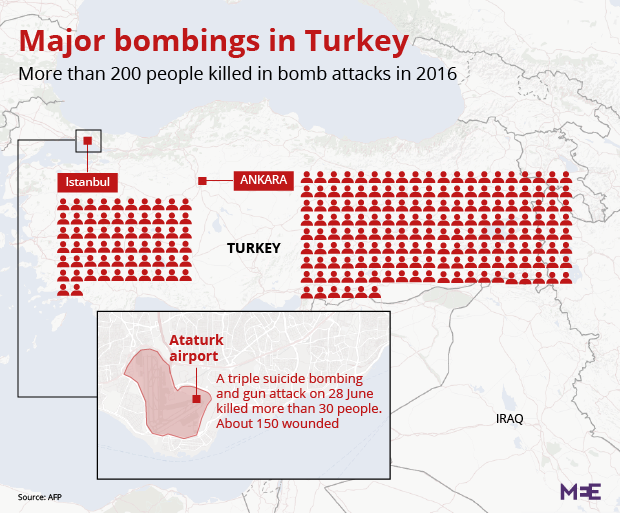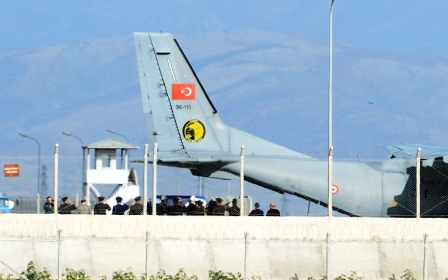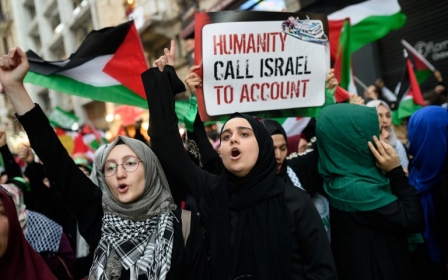Turkey declares day of mourning after 41 killed in airport bombings

Turkey declared a day of national mourning on Wednesday after a deadly series of suicide bombings killed 41 people at an Istanbul airport on Tuesday night.
Two hundred and thirty-nine people were also injured when three explosions hit the international arrivals terminal of Ataturk airport, the country's largest and third-busiest in Europe.
A Turkish official said that five Saudis and two Iraqis were among the dead, while citizens from China, Jordan, Tunisia, Uzbekistan, Iran and Ukraine were also thought to be among the 18 foreigners killed.
Twenty-three Turks are thought to have been killed in the blasts.
Late on Tuesday, Turkish President Recep Tayyip Erdogan called for Western countries to take a "resolute stance" against "terrorist" organisations.
“We expect that a resolute stance against terrorist organisations should be adopted by the world and especially Western countries with their parliament, media and non-governmental organisations,” he said.
“Turkey will continue its fight against all terrorist organisations at all costs until the end of terrorism."
Three suicide bombers were involved in the attack. An official said two of the bombers were at the international arrivals terminal and the third in the parking lot. All three detonated suicide vests.
In a CNN-Turk report, taxi driver Cemal Yalcin said: "I was waiting in the line to pick up customers. Then I heard an explosion, gunshots and then another explosion. Many of my colleagues in line before me were injured and have been taken to hospital."
Police set up a perimeter around the site, television images showed.
Turkey has imposed a media ban on domestic news outlets to prevent graphic images from being broadcast.
TRT World, a Turkish news outlet, reported that all entry and exit points at the airport were closed off after the attack.
All flights at Istanbul's Ataturk international airport were suspended, according to local Turkish news outlets, although flights had begun to land at the airport again on Wednesday morning.
According to Hurriyet, Turkish Airlines cancelled 340 flights.
On Tuesday, Iran also announced it had suspended all flights to Istanbul, according to the Iranian news agency Fars.
Reza Jaferzadeh, Iran's head of civilian aviation quoted as saying: "Flights to Istanbul are suspended until Turkey can guarantee safety of flights."
No group has yet claimed responsibility for the attack, although investigators have pointed the finger at Islamic State.
Suicide bombings have also been carried out in past in the country by the Kurdistan Freedom Falcons (TAK), a hardline offshoot of the Kurdistan Workers Party (PKK).
However, though the group has been responsible for many civilians deaths, it has traditionally targeted the Turkish military.
Security fears
Turkish opposition leaders condemned the attack, but also questioned whether there had been intelligence or security failures in the run-up to the bombings.
“This is not an ordinary incident,” said Levent Gok, deputy parliamentary group leader of the main opposition Republican People’s Party (CHP).
“We should think about how such a thing could happen in the most secure airport of the country, how terrorism reached the heart of cities. There are serious lesson to be learned here.”
Turkey has been hit by a string of deadly attacks in the past year, blamed on both Kurdish rebels and the IS group.
A bomb ripped through a central Istanbul district on 7 June, killing 11 people, including seven police officers and four civilians.
Two separate blasts in Ankara claimed by TAK earlier this year claimed dozens of lives.
Last month, at least eight people including soldiers were wounded by a remotely detonated car bomb aimed at a military vehicle in Istanbul that was claimed by the PKK.
Meanwhile, a dozen German tourists were killed on 12 January in a bombing in the heart of Istanbul's tourist district blamed on IS militants.
At least three Israelis and an Iranian were killed in a 19 March bombing on Istanbul's main Istiklal shopping street, an attack also blamed on IS.
Attacks in Turkey have had a dire effect on the tourism industry and further violence in Istanbul comes at the worst possible time heading into the key summer season.
Some 1.75 million foreigners came to Turkey in April, down more than 28 percent in April 2015, the tourism ministry said in its latest release.
The fall was the steepest monthly decrease for 17 years and raised fresh concerns about the health of the industry heading into the summer. The US embassy in Turkey in April warned of "credible threats" to tourist areas in Istanbul and the resort city of Antalya, in particular to public squares and docks.
Turkey, a member of NATO and the US-led anti-IS coalition, appears to have stepped up its operations against IS in northern Syria, where the militants control areas near the border. Some analysts say this has made Turkey more vulnerable to attacks. It has also targeted Syrian Kurdish groups fighting IS in northern Syria.
New MEE newsletter: Jerusalem Dispatch
Sign up to get the latest insights and analysis on Israel-Palestine, alongside Turkey Unpacked and other MEE newsletters
Middle East Eye delivers independent and unrivalled coverage and analysis of the Middle East, North Africa and beyond. To learn more about republishing this content and the associated fees, please fill out this form. More about MEE can be found here.





